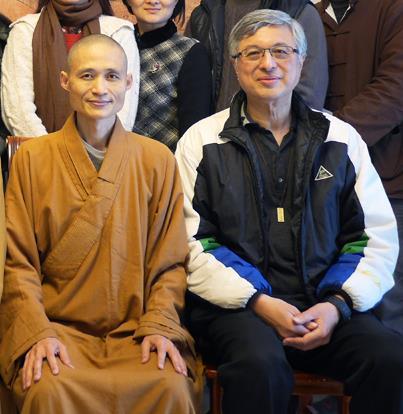
My Father Received by Amitabha Buddha
My Dad was Skeptical about Buddhism My dad passed away in April 2012 at the age of 95. He was not well educated, and had

My Dad was Skeptical about Buddhism My dad passed away in April 2012 at the age of 95. He was not well educated, and had

Buddha-invocation (Ch. nianfo; J. nembutsu) in its various forms is the most common practice in Buddhism. It is a routine daily practice in nearly all schools of

Wisdom and Faith: Two Sides of the Same Coin For years, I have been searching for the meaning of life, the absolute truth, the ultimate

“What does Athens have to do with Jerusalem?” scoffed the early church writer Tertullian, and in so uttering drew the battle lines between reason and

The Importance of “Sincere Mind” “Sincere Mind” is the first of the “Three States of Mind,” in other words, “Sincere Mind,” “Deep Mind,” and “Mind

Fourteen years ago, José Cabezón argued brilliantly that “theology” should no longer be a dirty word in Buddhism (despite being derived from the Greek word theos, or “God”).

The Faith Approach and the Wisdom Approach Pure Land Buddhism is a teaching of deliverance by other-power for rebirth in the Land of Bliss, not a teaching

A Brief History of the Formation of the Land of Bliss According to the Infinite Life Sutra, in the era of Lokeshvararaja Tathagata, there was once

Two Kinds of Nature As a Pure Land, the nature of the Land of Bliss is pure in every sense of the word. As declared by

What is the difference between Heaven and a Buddha’s Pure Land? This is a question that has vexed outsiders and beginners to Pure Land Buddhism.

In the Infinite Life Sutra, one of the main texts of the Pure Land tradition, Amitabha Buddha made his 18th vow: “If, when I attain Buddhahood,

In the last three articles in my column, we’ve been discussing a lot about Amitabha-recitation “by ten times”. There are actually two “discrepancies” between the